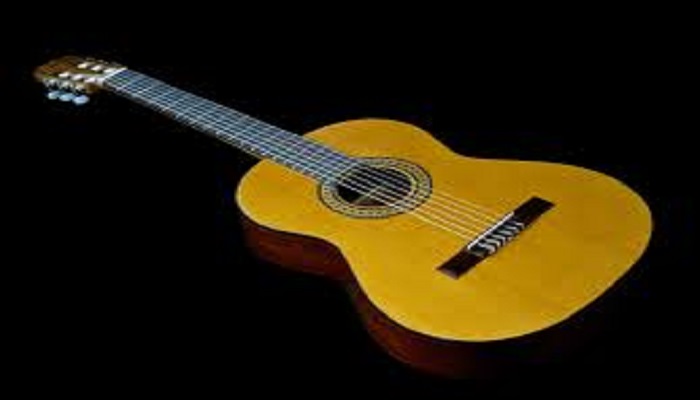The acoustic classical guitar, often simply known as the classical guitar, is a timeless instrument revered for its elegance, rich tone, and expressive capabilities. Its beauty is not just in its sound but also in its craftsmanship, history, and the emotions it evokes. Here’s a journey into the enchanting world of acoustic classical guitars and what makes them so special.
Aesthetic Elegance
- Graceful Design: The classical guitar features a refined, symmetrical body shape with smooth curves that exude elegance. The traditional design emphasizes both form and function, creating an instrument that is as beautiful to look at as it is to play.
- Craftsmanship: The artistry involved in crafting a classical guitar is remarkable. Skilled luthiers select fine woods, such as spruce or cedar for the top and rosewood or mahogany for the back and sides. Each guitar is meticulously crafted, with intricate inlays and detailed binding that showcase exceptional craftsmanship.
Rich, Warm Tone
- Nylon Strings: Classical guitars are strung with nylon strings, which produce a warm, mellow tone that is both rich and resonant. This unique sound quality is perfect for classical compositions, flamenco, and various types of folk music.
- Balanced Sound: The tonal balance across the frequency spectrum provides a clear, well-rounded sound that highlights the nuances of each musical passage. This tonal richness is ideal for conveying intricate melodies and harmonies.
Expressive Capabilities
- Dynamic Range: Classical guitars are capable of a wide dynamic range, allowing musicians to express subtle variations in volume and intensity. This dynamic control is essential for interpreting classical pieces and conveying emotional depth.
- Technical Precision: The instrument’s design supports complex fingerstyle techniques and intricate playing methods. Players can produce a variety of sounds, from delicate, soft notes to powerful, resonant chords.
Cultural and Historical Significance
- Rich Heritage: The classical guitar has a storied history that spans centuries. Its origins can be traced back to early stringed instruments, evolving over time into the sophisticated instrument we know today. This historical context adds to its allure and cultural significance.
- Musical Tradition: Classical guitars are central to many musical traditions, including classical, flamenco, and Latin American music. The repertoire for classical guitar is vast and includes works by renowned composers such as Fernando Sor, Francisco Tárrega, and Andrés Segovia.

Emotional Connection
- Personal Expression: Playing the classical guitar offers a profound means of personal expression. The ability to convey emotions and interpret music through the instrument creates a deep, personal connection between the player and the music.
- Meditative Experience: The act of playing the classical guitar can be meditative and therapeutic. The focus required and the soothing sound of the instrument can provide relaxation and emotional balance.
Educational Value
- Skill Development: Learning to play the classical guitar involves developing fine motor skills, concentration, and discipline. These skills are valuable not only for musical proficiency but also for personal growth and cognitive development.
- Artistic Appreciation: Studying classical guitar enhances appreciation for musical artistry and the complexity of musical compositions. It fosters a deeper understanding of music theory and performance practice.
Versatility in Performance
- Solo and Ensemble: The classical guitar excels both as a solo instrument and in ensemble settings. It can be used for solo performances, providing a full and captivating sound, or as part of a chamber group, blending seamlessly with other instruments.
- Genre Adaptability: While traditionally associated with classical and flamenco music, the classical guitar’s versatility allows it to adapt to various musical styles and genres, expanding its appeal to a wide range of audiences.
Conclusion
The beauty of acoustic classical guitars lies in their elegance, rich tonal quality, and the expressive power they offer. Their craftsmanship and historical significance add layers of depth and allure, making them cherished by musicians and music lovers alike. Whether you are captivated by their sound, their artistic design, or the emotional connection they facilitate, classical guitars stand as a testament to the timeless beauty of music and craftsmanship. Discovering and playing this instrument is not just about making music—it’s about connecting with a rich tradition and experiencing the profound beauty it brings to your life.
